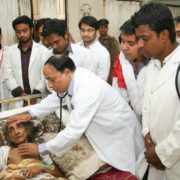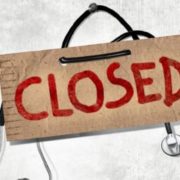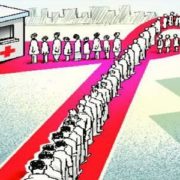Dynamic assured career progression DACP
Press Information Bureau
Government of India
Ministry of Health and Family Welfare
27-August-2013 13:27 IST
Career Promotion Schemes for Doctors
Central Health Service (CHS) Officers in Central Government are governed by the Dynamic Assured Career Progression (DACP) Scheme, which was implemented by Government of India based on the recommendations of Vth Central Pay Commission providing promotion to the CHS officers without linkage to vacancies upto the level of Chief Medical Officer – Non-Functional Selection Grade (CMO-NFSG)/ Specialist Grade I/ Professor w.e.f. 5.4.2002. The benefit of promotion under DACP Scheme was extended to Dental Officers under Ministry of Health and Family Welfare without linkage to vacancies upto the level of Staff Surgeon (Dental) (NFSG)/ Professor/ Maxillofacial Surgeon w.e.f. 25.8.2006.
Based on the acceptance of VIth Central Pay Commission’s the Government of India further extended the Dynamic Assured Career Progression (DACP) Scheme upto the Senior Administrative Grade (SAG) level without linkage to vacancies in respect of Medical and Dental Doctors in the Central Government, whether belonging to Organised Service or holding isolated posts w.e.f. 29.10.2008 .All Ministries/ Departments of the Central Government are required to implement the DACP Scheme accordingly in respect of Medical/ Dental Doctors under their control. This benefit of promotion upto the level of SAG without linkage to vacancies under DACP Scheme was also extended to the officers of various sub-cadres of Central Health Service (CHS) and Dental Doctors under the Ministry of Health and Family Welfare w.e.f. 29.10.2008.
Doctors belonging to respective State services are not under the ambit of Central Government. The promotion of eligible Central Government medical doctors is a continuous ongoing process and promotions are made after following due procedure like Departmental Promotion Committee (DPC) constituted for the purpose and fulfilment of other formalities as per Department of Personnel & Training’s instructions in this regard.
This information was given by the Union Minister of Health & Family Welfare Shri Ghulam Nabi Azad in written reply to a question in the Lok Sabha today.
PIB









